Europa/Rusia/universityworldnews.com
Las universidades rusas están listas para emerger de décadas de relativa oscuridad y convertirse en una nueva fuerza en la educación superior internacional, según expertos en clasificación internacional en una cumbre mundial de QS en Moscú sobre el logro de la excelencia universitaria.
Aumento de publicaciones de investigación en inglés, apoyo del gobierno para una mayor libertad académica y vínculos internacionales y la aparición de un influyente grupo de presión – Rusia 5-100 – están abriendo las «gemas ocultas» de la educación superior rusa, Nunzio Quacquarelli, CEO y fundador de Londres empresa de clasificación internacional basada en QS, dice.
“Hay todo tipo de focos de excelencia que no siempre son conocidos internacionalmente – y la tendencia de los académicos rusos no publicar en Inglés ha sido un factor frenando el desarrollo internacional de la educación superior de Rusia ‘dijo a University World News .
‘ Ahora el gobierno ruso quiere que las universidades rusas sean reconocidas globalmente, y yo diría que este proceso de internacionalización es casi inevitable «.
Hablando en la Segunda Cumbre Estratégica Anual de QS para el Avance de la Excelencia Universitaria, organizada por la Universidad de Rusia de Amistad de los Pueblos ( RUDN), Quacquarelli agregó que un fuerte aumento en el uso del inglés por parte de académicos y personal universitario ruso estaba impulsando un aumento en la publicación de investigaciones rusas en revistas internacionales.
Ese proceso alimentaría los rankings internacionales y aumentaría la visibilidad de la educación superior rusa
» . Sospecho que también habrá un aumento en el interés del estudiante internacional s en oportunidades de educación superior de alta calidad a bajo costo «, dijo, y agregó que» Rusia ha ocultado gemas en la educación superior … Bajo el comunismo y luego, el conocimiento se desarrolló y mantuvo como un bien interno que no se comparte: ingeniería nuclear, metales, aleaciones, petróleo y gas … Rusia tiene una de las principales investigaciones en el mundo y su academia de ciencias siempre ha sido un centro de excelencia. »
Mandy Mok, CEO de QS Branding and Conferences, QS Asia, dijo:» Rusia es el hogar de muchas universidades excelentes que merecen un perfil mucho más alto a nivel internacional. La educación superior está experimentando un cambio rápido: una de las más grandes en los últimos 10-15 ha sido el aumento de las universidades asiáticas en los rankings mundiales y los próximos 10-15 años bien pueden estar marcados por el aumento de las universidades rusas y centrales [asiáticas]. »
Vladimir Filippov, rector de RUDN en Moscú, se hizo eco de estos comentarios en un discurso de apertura en la conferencia el martes.
una figura popular e influyente en el mundo académico ruso, Filippov, que sirvió como ministro de educación durante más de seis años, que sale por largo launiversidad , fundada en 1960, guiada por los cambios tumultuosos en Rusia desde la década de 1990.
Hablando en inglés, le dijo a 450 delegados de más de 27 países, que representan a 1.128 instituciones de educación superior, que el respaldo del gobierno ruso garantizaría una mayor visibilidad educación en todo el mundo en los próximos años
» . El desarrollo del potencial de exportación del sistema educativo ruso es ahora un objetivo [del gobierno oficial], y eso incluye el de la educación rusa como marca en el mercado internacional «, dijo.
Como la única universidad de «múltiples perfiles» en Rusia, que abarca desde humanidades hasta ciencia, tecnología e ingeniería, RUDN atrae a estudiantes de más de 150 países en todo el mundo bajo una declaración de misión que dice «unir a personas de diferentes culturas por conocimiento» crear líderes mundiales «, agregó.
En línea con la nueva prioridad nacional sobre el desarrollo de la educación superior rusa como marca global, RUDN pretendía duplicar el número de profesores extranjeros en los próximos dos años del 4,5% de profesores al 10,2% y duplicar el número de estudiantes internacionales, para ejemplo, programas de aprendizaje permanente de 2,000 hoy en día.
Como parte de la campaña para ampliar el alcance de la educación superior rusa, la universidad ha firmado acuerdos de cooperación con más de 250 universidades en todo el mundo, dijo Filippov.
«Estamos expandiendo los clusters regionales RUDN en Asia, América Latina, África, Medio Oriente y África del Norte y los países de la Comunidad de Estados Independientes. Participar con otras universidades y gobiernos y trabajar con asociaciones de empleo para aumentar la empleabilidad de los graduados «es esencial para la misión internacional de la universidad», agregó.
Filippov dijo a University World News que las recientes reformas ministeriales, que separan la responsabilidad de las universidades del ministerio de educación general a un nuevo ministerio de educación superior y ciencia, ayudarían a acelerar el nuevo impulso de Rusia para conectarse con el mundo más amplio de la educación superior.
«Estoy seguro de que la creación de un nuevo ministerio ayudará a las principales universidades rusas a avanzar en el ranking», dijo.
«La educación rusa se está volviendo más abierta: en la década de 1990 estudiantes de 100 países estudiaron en RUDN, hoy esa cifra es 155 y el 38% de nuestros estudiantes provienen del extranjero. Actualmente Rusia ofrece becas para 150,000 estudiantes extranjeros y hay planes para hacer educación rusa. aún más abierto al mundo con hasta 700,000 estudiantes extranjeros estudiando en Rusia para 2025.
Fuente: http://www.universityworldnews.com/article.php?story=20180524145349572
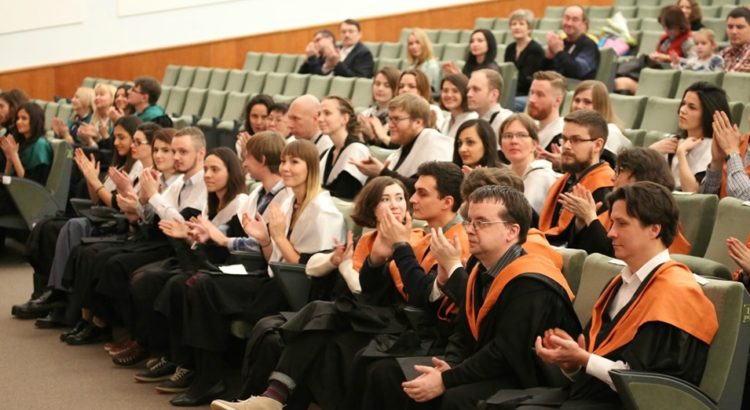
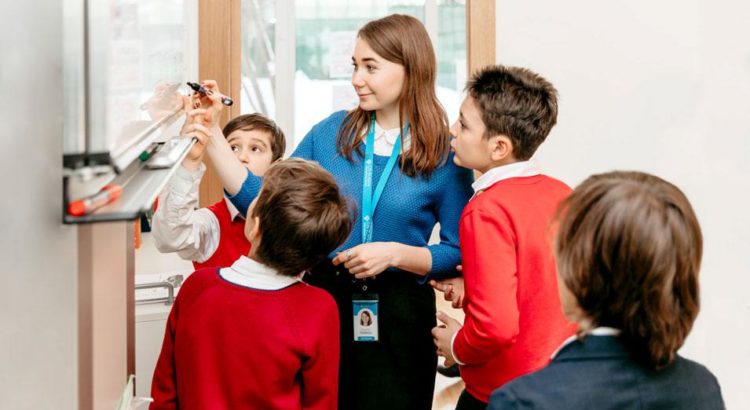


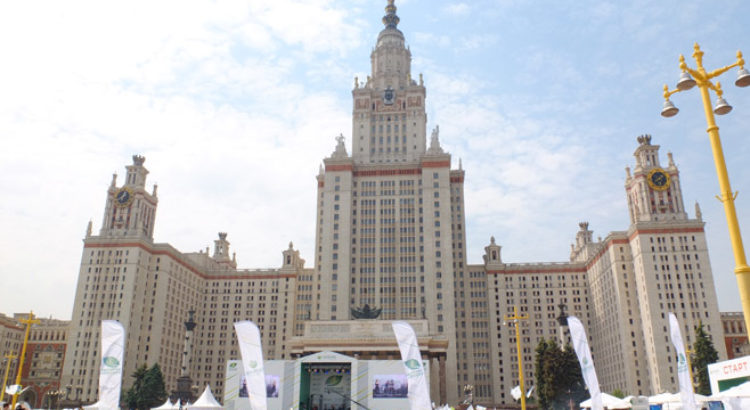
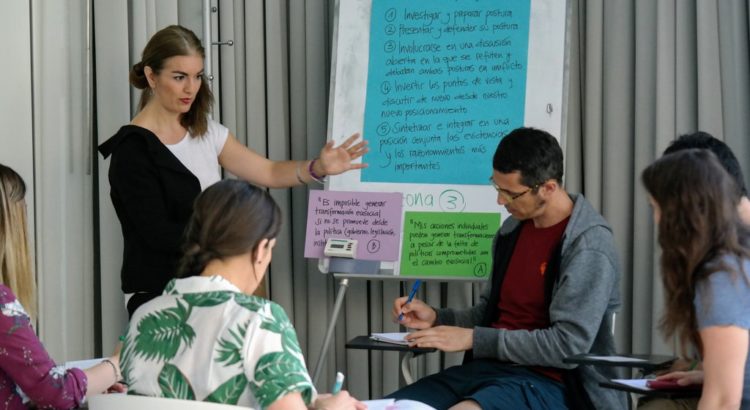

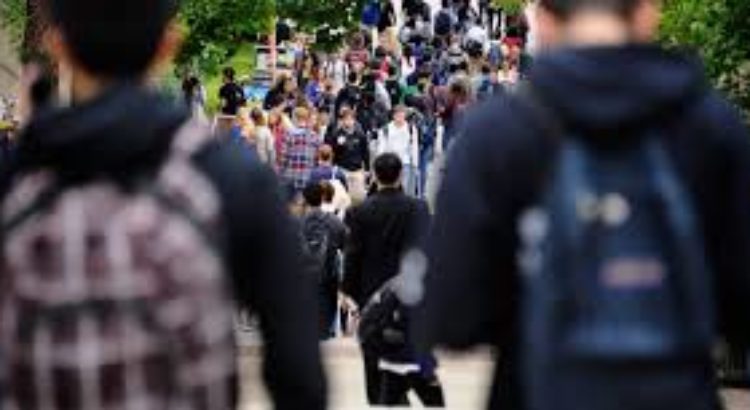






 Users Today : 54
Users Today : 54 Total Users : 35460263
Total Users : 35460263 Views Today : 73
Views Today : 73 Total views : 3418968
Total views : 3418968